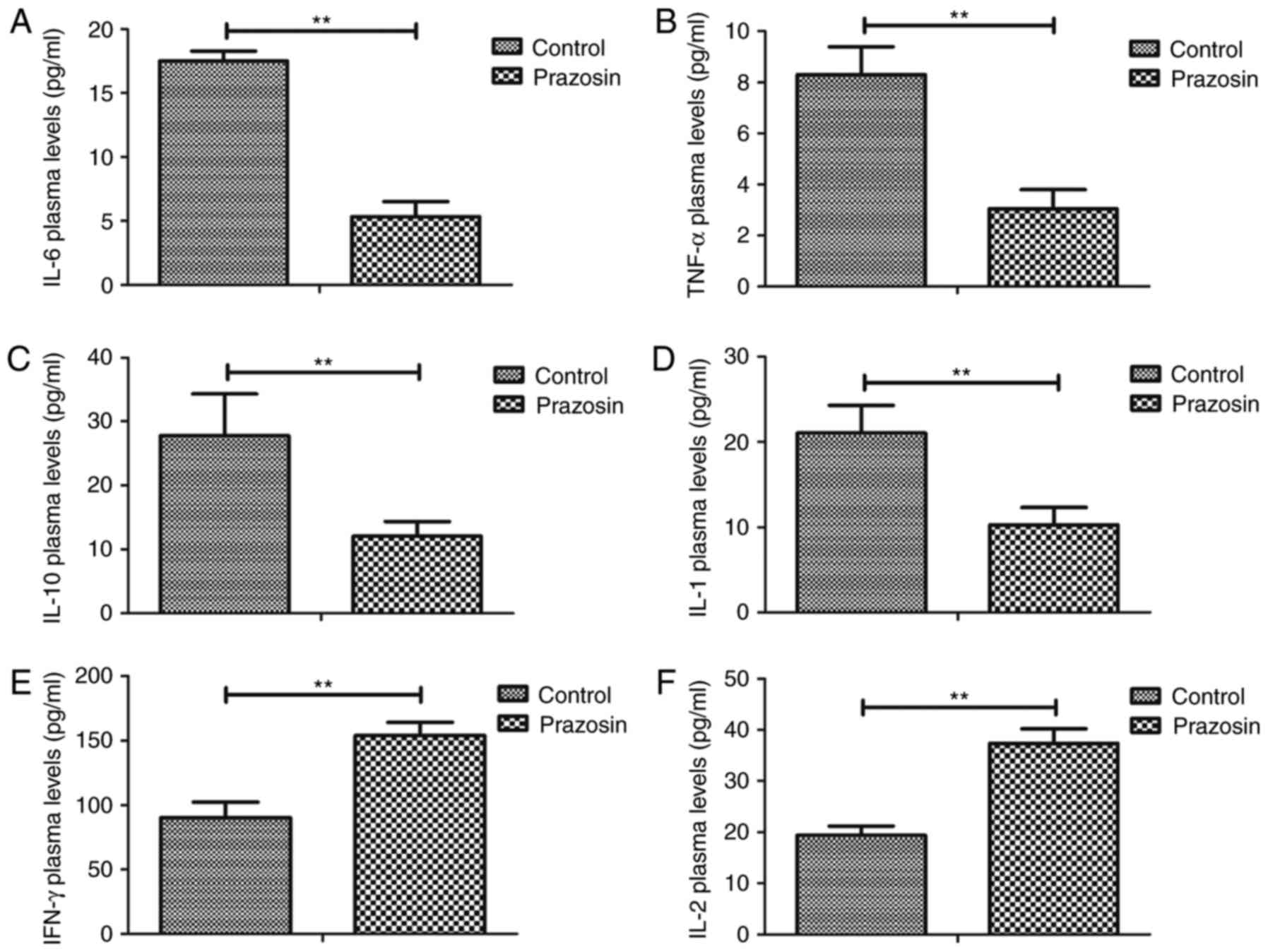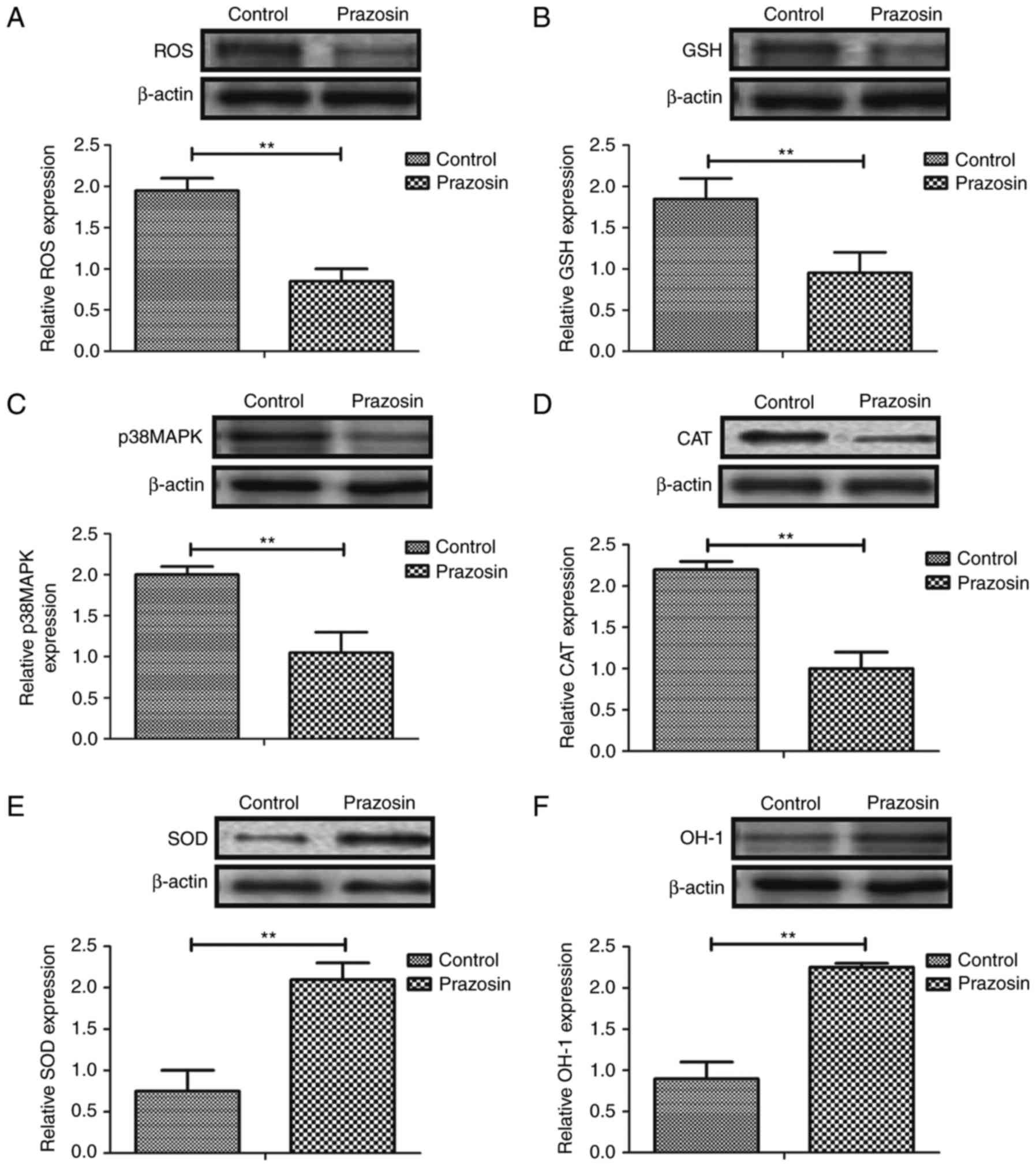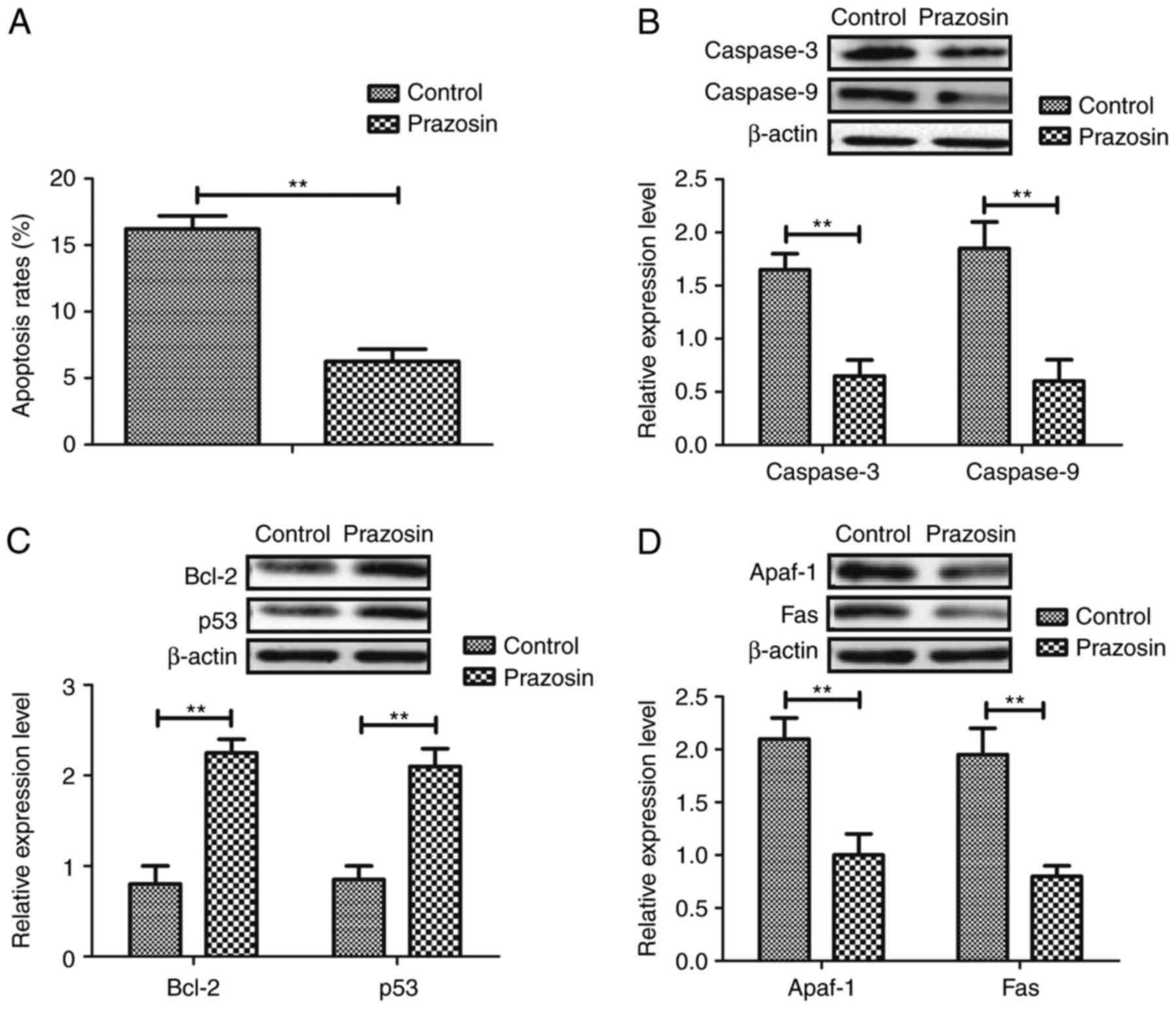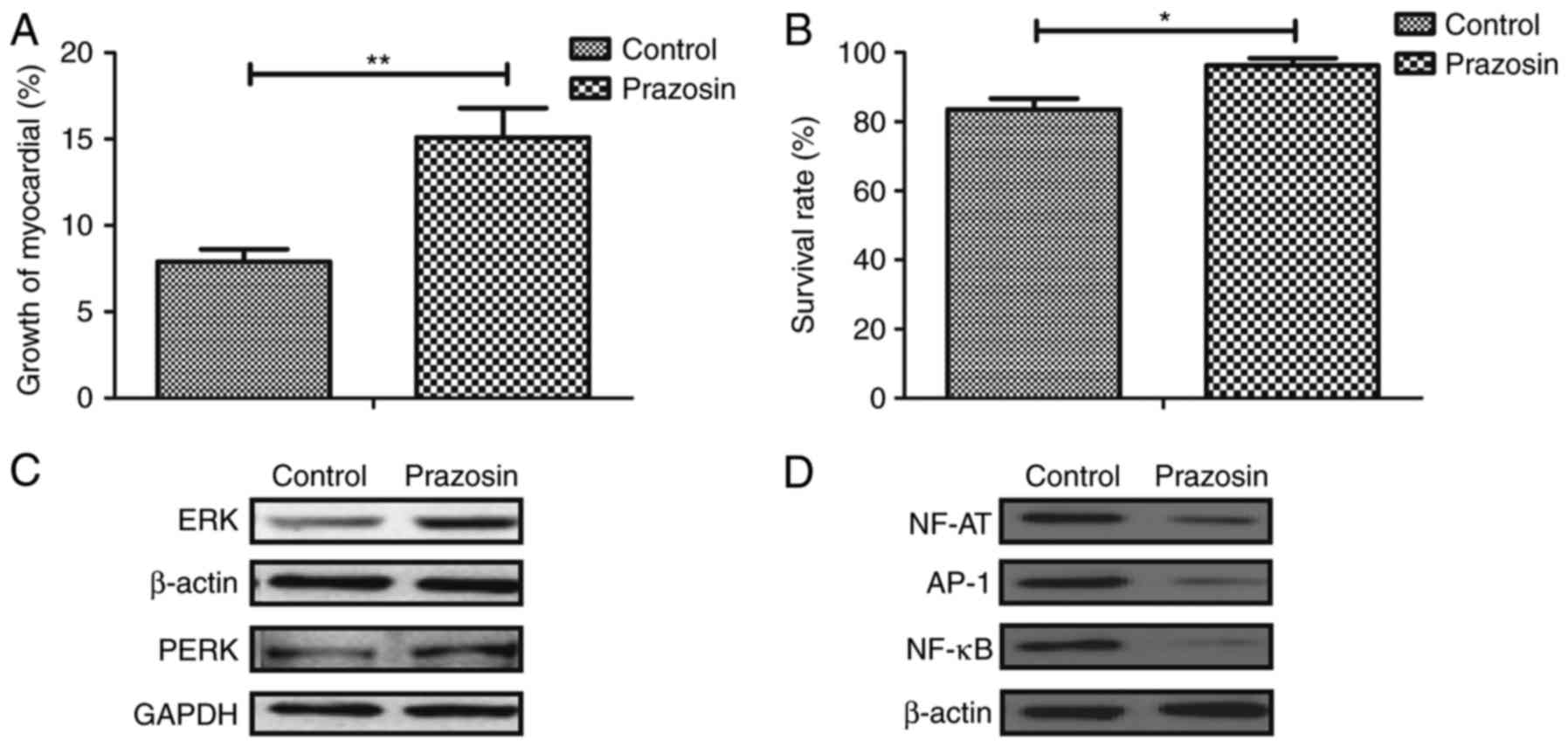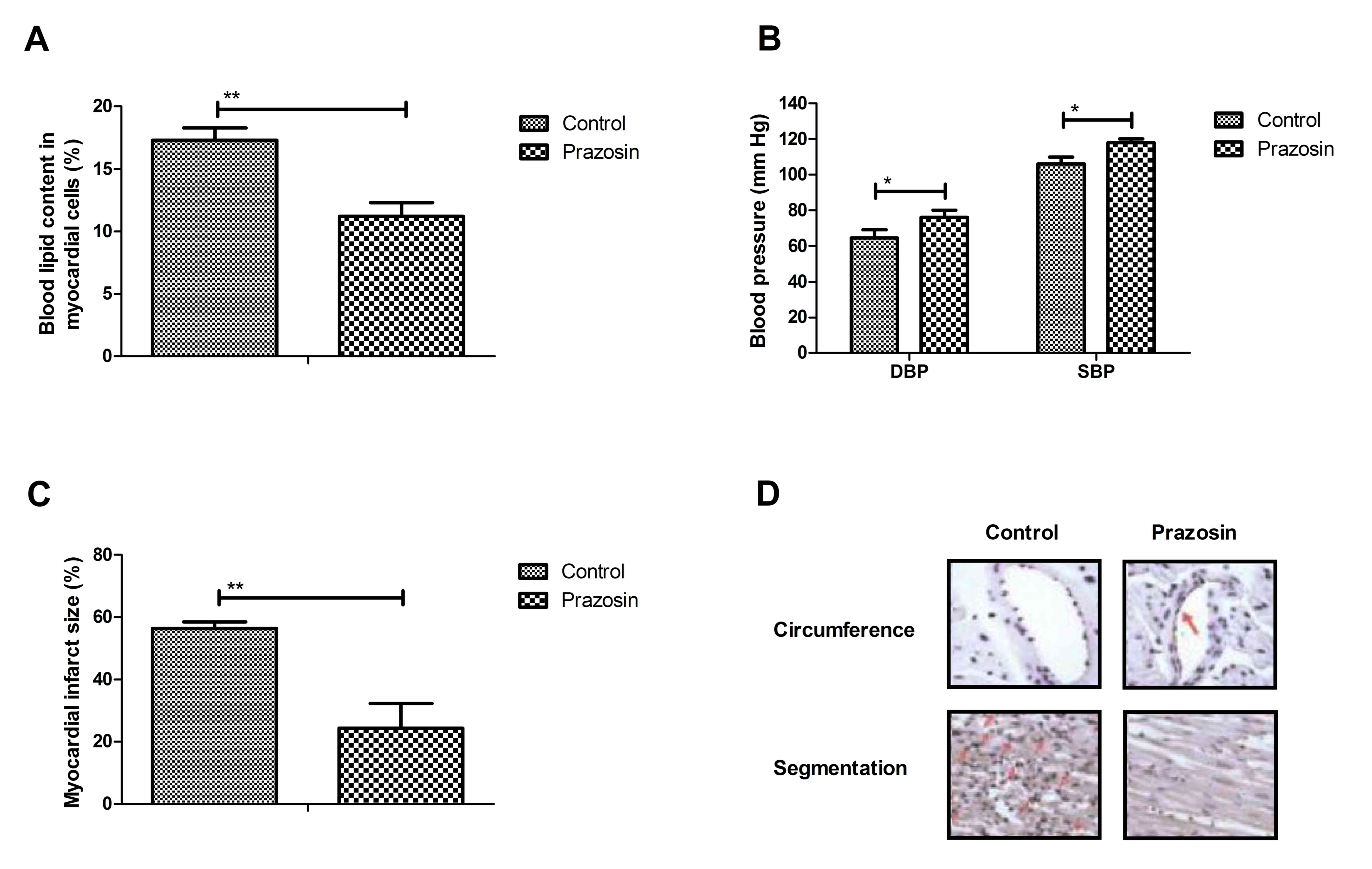|
1
|
Kaligis RW, Adiarto S, Erwinanto 2,
Nugroho J, Pradnyana BA, Lefi A and Rifqi S: Carotid intima-media
thickness in indonesian subjects with cardiovascular disease risk
factors who were not receiving lipid-lowering agents. Int J Angiol.
25:174–180. 2016. View Article : Google Scholar : PubMed/NCBI
|
|
2
|
Lines SW and Carter AM: Complement and
cardiovascular disease-the missing link in haemodialysis patients.
Nephron. 134:1042016. View Article : Google Scholar : PubMed/NCBI
|
|
3
|
Seaman CD, George KM, Ragni M and Folsom
AR: Association of von Willebrand factor deficiency with prevalent
cardiovascular disease and asymptomatic carotid atherosclerosis:
The atherosclerosis risk in communities study. Thromb Res.
144:236–238. 2016. View Article : Google Scholar : PubMed/NCBI
|
|
4
|
Morgia G, Russo GI, Tubaro A, Bortolus R,
Randone D, Gabriele P, Trippa F, Zattoni F, Porena M, Mirone V, et
al: Prevalence of cardiovascular disease and osteoporosis during
androgen deprivation therapy prescription discordant to EAU
guidelines: Results from a multi-center cross-sectional analysis
from the CHOsIng treatment for prostate canCEr (CHOICE) study.
Urology. 96:165–170. 2016. View Article : Google Scholar : PubMed/NCBI
|
|
5
|
Heikkilä K, Koskinen OA, Agarwal A,
Tikkinen KA, Mäki M and Kaukinen K: Associations of coeliac disease
with coronary heart disease and cerebrovascular disease: A
systematic review and meta-analysis. Nutr Metab Cardiovasc Dis.
25:816–831. 2015. View Article : Google Scholar : PubMed/NCBI
|
|
6
|
Tully PJ, Turnbull DA, Beltrame J,
Horowitz J, Cosh S, Baumeister H and Wittert GA: Panic disorder and
incident coronary heart disease: A systematic review and
meta-regression in 1131612 persons and 58111 cardiac events.
Psychol Med. 45:2909–2920. 2015. View Article : Google Scholar : PubMed/NCBI
|
|
7
|
Weinreuter M, Kreusser MM, Beckendorf J,
Schreiter FC, Leuschner F, Lehmann LH, Hofmann KP, Rostosky JS,
Diemert N, Xu C, et al: CaM Kinase II mediates maladaptive
post-infarct remodeling and pro-inflammatory chemoattractant
signaling but not acute myocardial ischemia/reperfusion injury.
EMBO Mol Med. 6:1231–1245. 2014. View Article : Google Scholar : PubMed/NCBI
|
|
8
|
Ren-an Q, Juan L, Chuyuan L, Wenjuan F,
Chunyan H, Xuemei Y, Lin H and Hong N: Study of the protective
mechanisms of Compound Danshen Tablet (Fufang Danshen Pian) against
myocardial ischemia/reperfusion injury via the Akt-eNOS signaling
pathway in rats. J Ethnopharmacol. 156:190–198. 2014. View Article : Google Scholar : PubMed/NCBI
|
|
9
|
Yndestad A, Sandanger Ø, Jong WMC, Aukrust
P and Zuurbier CJ: Response to letter from Toldo et al. on ‘NLRP3
inflammasome activation during myocardial ischemia reperfusion is
cardioprotective’. Biochem Biophys Res Commun. 474:328–329. 2016.
View Article : Google Scholar : PubMed/NCBI
|
|
10
|
Yang M, Chen J, Zhao J and Meng M:
Etanercept attenuates myocardial ischemia/reperfusion injury by
decreasing inflammation and oxidative stress. PLoS One.
9:e1080242014. View Article : Google Scholar : PubMed/NCBI
|
|
11
|
Chao J, Yin H, Yao YY, Shen B, Smith RS Jr
and Chao L: Novel role of kallistatin in protection against
myocardial ischemia-reperfusion injury by preventing apoptosis and
inflammation. Hum Gene Ther. 17:1201–1213. 2006. View Article : Google Scholar : PubMed/NCBI
|
|
12
|
Vinten-Johansen J, Jiang R, Reeves JG,
Mykytenko J, Deneve J and Jobe LJ: Inflammation, proinflammatory
mediators and myocardial ischemia-reperfusion Injury. Hematol Oncol
Clin North Am. 21:123–145. 2007. View Article : Google Scholar : PubMed/NCBI
|
|
13
|
Loubele ST, Spek CA, Leenders P, van Oerle
R, Aberson HL, Hamulyák K, Ferrell G, Esmon CT, Spronk HM and ten
Cate H: Activated protein C protects against myocardial
ischemia/reperfusion injury via inhibition of apoptosis and
inflammation. Arterioscler Thromb Vasc Biol. 29:1087–1092. 2009.
View Article : Google Scholar : PubMed/NCBI
|
|
14
|
Al-Asmari AK, Al-Seif AA, Hassen MA and
Abdulmaksood NA: Role of prazosin on cardiovascular manifestations
and pulmonary edema following severe scorpion stings in Saudi
Arabia. Saudi Med J. 29:299–302. 2008.PubMed/NCBI
|
|
15
|
Vaziri ND: Role of dyslipidemia in
impairment of energy metabolism, oxidative stress, inflammation and
cardiovascular disease in chronic kidney disease. Clin Exp Nephrol.
18:265–268. 2014. View Article : Google Scholar : PubMed/NCBI
|
|
16
|
Matsuda M and Shimomura I: Roles of
adiponectin and oxidative stress in obesity-associated metabolic
and cardiovascular diseases. Rev Endocr Metab Disord. 15:1–10.
2014. View Article : Google Scholar : PubMed/NCBI
|
|
17
|
Csanyi G and Miller FJ Jr: Oxidative
stress in cardiovascular disease. Int J Mol Sci. 15:6002–6008.
2014. View Article : Google Scholar : PubMed/NCBI
|
|
18
|
Belló-Klein A, Khaper N, Llesuy S,
Vassallo DV and Pantos C: Oxidative stress and antioxidant
strategies in cardiovascular disease. Oxid Med Cell Longev.
2014:6787412014. View Article : Google Scholar : PubMed/NCBI
|
|
19
|
Molinar-Toribio E, Pérez-Jiménez J,
Ramos-Romero S, Lluís L, Sánchez-Martos V, Taltavull N, Romeu M,
Pazos M, Méndez L, Miranda A, et al: Cardiovascular disease-related
parameters and oxidative stress in SHROB rats, a model for
metabolic syndrome. PLoS One. 9:e1046372014. View Article : Google Scholar : PubMed/NCBI
|
|
20
|
Kristek F and Koprdova R: Long-term effect
of prazosin administration on blood pressure, heart and structure
of coronary artery of young spontaneously hypertensive rats. J
Physiol Pharmacol. 62:295–301. 2011.PubMed/NCBI
|
|
21
|
Wai-Hoe L, Wing-Seng L, Ismail Z and
Lay-Harn G: SDS-PAGE-based quantitative assay for screening of
kidney stone disease. Biol Proced Online. 11:145–160. 2009.
View Article : Google Scholar : PubMed/NCBI
|
|
22
|
Jong WM, Ten Cate H, Linnenbank AC, de
Boer OJ, Reitsma PH, de Winter RJ and Zuurbier CJ: Reduced acute
myocardial ischemia-reperfusion injury in IL-6-deficient mice
employing a closed-chest model. Inflamm Res. 65:489–499. 2016.
View Article : Google Scholar : PubMed/NCBI
|
|
23
|
Wang Z, Zhang J, Ren T and Dong Z:
Targeted metabolomic profiling of cardioprotective effect of Ginkgo
biloba L. extract on myocardial ischemia in rats. Phytomedicine.
23:621–631. 2016. View Article : Google Scholar : PubMed/NCBI
|
|
24
|
Caraballo JC, Borcherding J, Rector M,
Hornick E, Stoltz D, Zabner J and Comellas AP: Role of PON in
anoxia-reoxygenation injury: A Drosophila melanogaster transgenic
model. PLoS One. 9:e844342014. View Article : Google Scholar : PubMed/NCBI
|
|
25
|
Duan JL, Wang JW, Guan Y, Yin Y, Wei G,
Cui J, Zhou D, Zhu YR, Quan W, Xi MM and Wen AD: Safflor yellow A
protects neonatal rat cardiomyocytes against anoxia/reoxygenation
injury in vitro. Acta Pharmacol Sin. 34:487–495. 2013. View Article : Google Scholar : PubMed/NCBI
|
|
26
|
Khaidakov M, Mercanti F, Wang X, Ding Z,
Dai Y, Romeo F, Sawamura T and Mehta JL: Prevention of export of
anoxia/reoxygenation injury from ischemic to nonischemic
cardiomyocytes via inhibition of endocytosis. Am J Physiol Heart
Circ Physiol. 306:H1700–H1707. 2014. View Article : Google Scholar : PubMed/NCBI
|
|
27
|
Hanon O, Giacomino A, Troy S, Bernaud C,
Girerd X and Weber S: Efficacy of and tolerance to prolonged
release prazosin in patients with hypertension and non-insulin
dependent diabetes. Ann Cardiol Angeiol (Paris). 49:390–396.
2000.(In French). PubMed/NCBI
|
|
28
|
Rudner S and Browne P: Case report:
Management of secondary hypertension in a feline with the use of
transdermal prazosin. Int J Pharm Compd. 14:488–491.
2010.PubMed/NCBI
|
|
29
|
Zhao LS and Xu CY: Effect of prazosin on
diabetic nephropathy patients with positive α1-adrenergic receptor
autoantibodies and refractory hypertension. Exp Ther Med.
9:177–182. 2015. View Article : Google Scholar : PubMed/NCBI
|
|
30
|
Kristek F, Malekova M and Cacanyiova S:
Long-term effect of prazosin and losartan administration on blood
pressure, heart, carotid artery, and acetylcholine induced dilation
of cardiovascular system of young Wistar rats and SHR. Gen Physiol
Biophys. 32:235–243. 2013. View Article : Google Scholar : PubMed/NCBI
|
|
31
|
Qazi H, Wijegunaratne H, Savajiyani R and
Koola MM: Naltrexone and prazosin combination for posttraumatic
stress disorder and alcohol use disorder. Prim Care Companion CNS
Disord. 16:2014.PubMed/NCBI
|
|
32
|
Carmona F, Manso PH, Silveira VS, Cunha
FQ, de Castro M and Carlotti AP: Inflammation, myocardial
dysfunction, and mortality in children with septic shock: An
observational study. Pediatr Cardiol. 35:463–470. 2014. View Article : Google Scholar : PubMed/NCBI
|
|
33
|
Bobbert P, Weikert U, Schmidt-Lucke C,
Skurk C, Meyer A, Steffens D, Schultheiss HP and Rauch U: Platelet
activation and thrombus formation relates to the presence of
myocardial inflammation in patients with cardiomyopathy. J Cardiol.
63:379–384. 2014. View Article : Google Scholar : PubMed/NCBI
|
|
34
|
Ritschel VN, Seljeflot I, Arnesen H,
Halvorsen S, Weiss T, Eritsland J and Andersen GØ: IL-6 signalling
in patients with acute ST-elevation myocardial infarction. Results
Immunol. 4:8–13. 2013. View Article : Google Scholar : PubMed/NCBI
|
|
35
|
Langhorn R, Persson F, Ablad B, Goddard A,
Schoeman JP, Willesen JL, Tarnow I and Kjelgaard-Hansen M:
Myocardial injury in dogs with snake envenomation and its relation
to systemic inflammation. J Vet Emerg Crit Care (San Antonio).
24:174–181. 2014. View Article : Google Scholar : PubMed/NCBI
|
|
36
|
de Gaetano M, Quacquaruccio G, Di
Castelnuovo A, Nowak N, Dorn J, Donati MB, Freudenheim JL, Trevisan
M and Iacoviello L: Haplotypes and haplotype-pairs of IL-1 beta and
IL-6 genes and risk of non fatal myocardial infarction in the
Western New York Acute MI Study. Thromb Haemost. 106:1231–1233.
2011. View Article : Google Scholar : PubMed/NCBI
|
|
37
|
Li X, Luo R, Chen R, Song L, Zhang S, Hua
W and Chen H: Cleavage of IκBα by calpain induces myocardial NF-κB
activation, TNF-α expression and cardiac dysfunction in septic
mice. Am J Physiol Heart Circ Physiol. 306:H833–H843. 2014.
View Article : Google Scholar : PubMed/NCBI
|
|
38
|
Goswami B, Rajappa M, Mallika V, Shukla DK
and Kumar S: TNF-alpha/IL-10 ratio and C-reactive protein as
markers of the inflammatory response in CAD-prone North Indian
patients with acute myocardial infarction. Clin Chim Acta.
408:14–18. 2009. View Article : Google Scholar : PubMed/NCBI
|
|
39
|
Hashemian M, Poustchi H,
Mohammadi-Nasrabadi F and Hekmatdoost A: Systematic review of zinc
biochemical indicators and risk of coronary heart disease. ARYA
Atheroscler. 11:357–365. 2015.PubMed/NCBI
|
|
40
|
Farvid MS, Ding M, Pan A, Sun Q, Chiuve
SE, Steffen LM, Willett WC and Hu FB: Response to letters regarding
article, ‘dietary linoleic acid and risk of coronary heart disease:
A systematic review and meta-analysis of prospective cohort
studies’. Circulation. 132:e23–e24. 2015. View Article : Google Scholar : PubMed/NCBI
|
|
41
|
Liu LL, Lin LR, Lu CX, Fu JG, Chao PL, Jin
HW, Zhang ZY and Yang TC: Expression of inflammatory and apoptosis
factors following coronary stent implantation in coronary heart
disease patients. Int Immunopharmacol. 11:1850–1854. 2011.
View Article : Google Scholar : PubMed/NCBI
|
|
42
|
Salmina AB, Shul'man VA, Nikulina SY,
Trufanova LV, Fursov AA, But'yanov PA, Kuskaev AP, Bol'shakova EV
and Kotlovskii MY: Apoptosis of leukocytes as a marker of
neutrophil-endotheliocyte interaction in coronary heart disease.
Bull Exp Biol Med. 144:39–41. 2007.(In English, Russian).
View Article : Google Scholar : PubMed/NCBI
|
|
43
|
Geng YJ: Molecular mechanisms for
cardiovascular stem cell apoptosis and growth in the hearts with
atherosclerotic coronary disease and ischemic heart failure. Ann N
Y Acad Sci. 1010:687–697. 2003. View Article : Google Scholar : PubMed/NCBI
|
|
44
|
Ren Y, Yang H, Browning C, Thomas S and
Liu M: Performance of screening tools in detecting major depressive
disorder among patients with coronary heart disease: A systematic
review. Med Sci Monit. 21:646–653. 2015. View Article : Google Scholar : PubMed/NCBI
|
|
45
|
Kim C, Cushman M, Kleindorfer D, Lisabeth
L, Redberg RF and Safford MM: A review of the relationships between
endogenous sex steroids and incident ischemic stroke and coronary
heart disease events. Curr Cardiol Rev. 11:252–260. 2015.
View Article : Google Scholar : PubMed/NCBI
|
|
46
|
Ray IB, Menezes AR, Malur P, Hiltbold AE,
Reilly JP and Lavie CJ: Meditation and coronary heart disease: A
review of the current clinical evidence. Ochsner J. 14:696–703.
2014.PubMed/NCBI
|
|
47
|
Jiang M, Wang L and Jiang HH: Role of
spinal MAPK-ERK signal pathway in myocardial ischemia-reperfusion
injury. Zhongguo Dang Dai Er Ke Za Zhi. 15:387–391. 2013.(In
Chinese). PubMed/NCBI
|
|
48
|
Duan J, Yang Y, Liu H, Dou PC and Tan SY:
Osthole ameliorates acute myocardial infarction in rats by
decreasing the expression of inflammatory-related cytokines,
diminishing MMP-2 expression and activating p-ERK. Int J Mol Med.
37:207–216. 2016. View Article : Google Scholar : PubMed/NCBI
|















